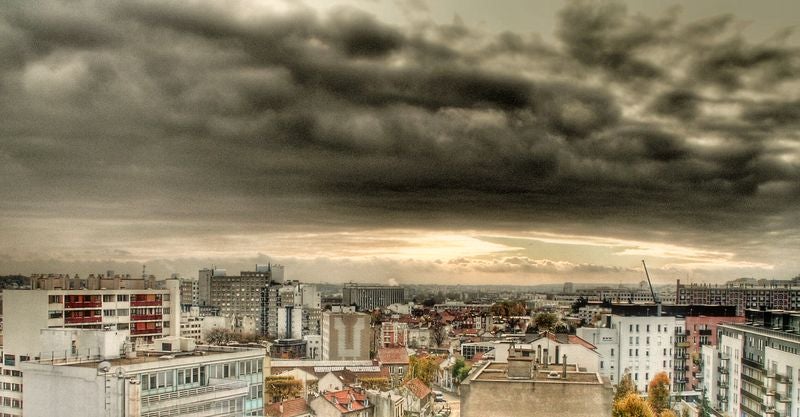Charlie Hebdo said something so Islamophobic this week that I believe it will fuel terrorism
So many of Paris' and Brussels' attackers came from the banlieues - and so many French recruits to Isis as well. Why can nobody take the hint?

I am a French woman of colour, a child of the banlieue. But Britain has been home for the past 15 years. France’s overt style of racism and what I call her ‘cultural tyranny’ was a key driver for my departure.
Too much of my Africanness had to be given away to be accepted as French. So to me, there is something both deeply saddening and almost ludicrously absurd in recurrently seeing Charlie Hebdo exploit and exacerbate the very exclusion related to tensions that feed terror in France.
Whether Charlie Hebdo likes it or not, alienation, marginalisation, racism and Islamophobia are central to many French people of colour turning to extremism. Those experiences have, for many, made France the enemy.
So for the publication to claim the attacks in Brussels were ‘merely the visible part of a very large iceberg’, to lazily reproduce the ‘all Muslims are terrorists’ trope and to denigrate Islamic beliefs, does not only amount to dangerous fear-mongering – or even to hate speech. In my opinion, such articles actively feed terrorism.
Much has been written about the infamous French banlieues. Their high rates of youth unemployment, their dilapidated infrastructures, the stigma they attract in France and invariably, their higher rates of criminality and social exclusion.
They have been a sore spot on France’s ideals of ‘Liberté, égalité, fraternité’ that simply will not heal. A sore that now seems to be festering so much that it threatens the very values which lie at the core of France’s identity.
Despite this, many cannot simply see that it is within this socio-political and economic context that terror arises in France. The obvious link between social alienation and the so-called ‘Islamic radicalisation’ escape them. That so many of Paris and indeed Brussels’ attackers were from the banlieues - as is a large proportion of French recruits to Isis - is not hint enough. So they blissfully run campaigns of alienation and exclusion, all the while loudly wondering: how did we end up here?
France has a long history of enforcing assimilation to an outdated and exclusive idea of Frenchness. This ‘French ideal’ seems, for many of us citizens of colour, to be based on a sense of paranoia which is disguised by incessant and uncritical discourses of secularism. It has resulted in many Muslims having to choose between their religion and their education. Between their ancestry and their Frenchness. Between assimilating or resisting.
And, quelle surprise...In this context, many are making the choice to resist this powerfully imposed Frenchness. Youngsters are purposefully manufacturing ‘foreign’ accents, the accents of their parents. I have met French people of colour who’ve left France and now point blank refuse to speak French. Conversions to Islam are reported to be on the up. One might expect that in the country that gave birth to Foucault, these acts of resistance would be better understood – but Charlie Hebdo merely asks how we got here, as if it’s a mystery nobody could ever work out.
Personally, ‘je ne suis pas Charlie’. I will not support any freedom of speech exercise which prioritises sensationalism over ethics, or profits over social impact. To me this shows no courage and certainly deserves no award.
‘Je ne suis pas Charlie’ because I have experienced first-hand being vilified and denigrated for allegedly not being French enough, because I am a Black and from the banlieues. I will never support this being done to others, whatever the pretext.
‘Je ne suis pas Charlie’ because I cannot stomach the ‘benevolent’, self-serving anti-racism of neo-liberals who fancy themselves beyond bigotry and intolerance and yet cannot fathom criticism from the people they claim to speak for.
And most importantly, ‘je ne suis pas Charlie’ because I believe the publication is needlessly increasing racial tensions by perpetuating the exclusion of French citizens who are Muslim – and pushing the extremely dangerous notion that Frenchness and Islam are mutually exclusive.
Join our commenting forum
Join thought-provoking conversations, follow other Independent readers and see their replies
Comments